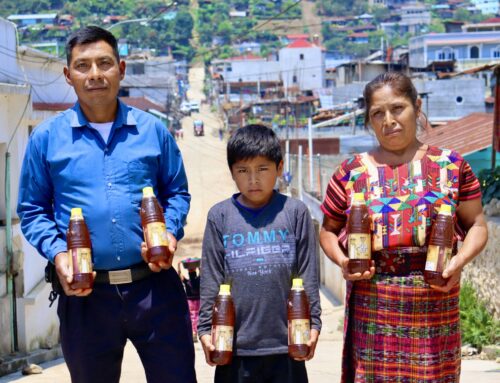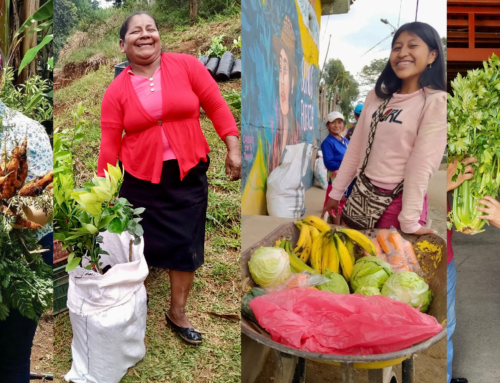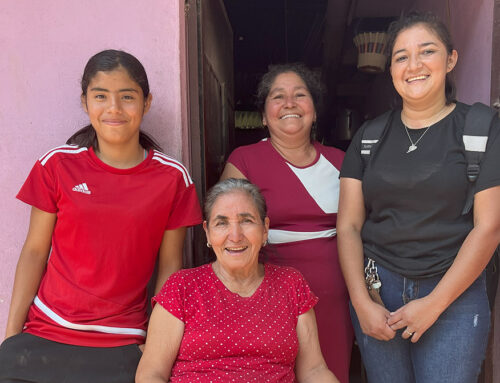In the lush coffeelands of Guatemala, the buzz of bees is becoming a sound of economic resilience and growth. Food 4 Farmers and our partners at the ACODIHUE coffee cooperative have recognized beekeeping as a transformative income generation strategy for these communities, whose members often experience up to six months of chronic hunger every year. Through diverse stories of entrepreneurial success, we see how integrating beekeeping with coffee cultivation can enhance livelihoods and stabilize income sources to allow families to put good food on their tables every day of the year.
One such inspiring story is of Adrian Herrera del Valle and his venture, La Pecoreadora. Starting as a beekeeper in 2021, Adrian quickly capitalized on his newfound skills, expanding his honey small business into the production of artisanal soaps and syrups. This endeavor has earned him an additional $313 USD monthly. Despite this sizable increase in monthly income, Adrian’s journey is not just about financial gain; he has become an ambassador for the health benefits and sustainability of honey, representing the potential for young entrepreneurs in his community.


Similarly, La Piquera, founded by friends Lester Lopez and Pedro Salucio, started as a beekeeping collective aimed at addressing surplus honey production. They diversified into producing honey-infused teas and other byproducts of beekeeping, creating new market opportunities and promoting beekeeping’s ecological benefits. Their efforts have spurred more young people to explore beekeeping, enhancing community development and local entrepreneurship.
Elvia Monzon, another member of the ACODIHUE coffee co-op, leveraged training provided by Food 4 Farmers’ local partner Intecap to start an artisanal sweets business, using honey as her primary ingredient. Her products were well received in local schools, allowing her to increase production and hire other women, thereby multiplying the economic impact within her community.
Finally, Juana Escobar’s story highlights the potential of specialized bee products like those from Melipona bees, native to the tropical Americas. By registering as a co-op member with ACODIHUE and diversifying her honey sales with products like honey lollipops, Juana has created a sustainable business model that supports her family and serves as a blueprint for resilience in her community.

These stories exemplify how beekeeping can be a far-reaching solution for food-insecure families in coffee regions with a powerful ripple effect. By diversifying into honey and bee-related products, these families can mitigate the risks associated with coffee farming, such as price fluctuations and climate-related impacts. Additionally, beekeeping promotes environmental health as bees play a crucial role in pollinating coffee plants and improving biodiversity, which support the ecosystem that sustains coffee production itself.



As our beekeeping programs continue to evolve, it’s clear that beekeeping is more than just an income alternative; it’s a sustainable practice that enriches our food systems, supports biodiversity, and builds stronger communities. For coffee-farming families, it is indeed a sweet and promising path to a secure future.
Join us in supporting coffee-farming families on their journey to a food-secure future! Donate to Food 4 Farmers online today to empower more stories like Adrian’s, Lester and Pedro’s, Mrs. Elvia’s, and Juana’s. If you work with or own a coffee company, we encourage you to support our beekeeping efforts by taking part in our Coffee For Bees campaign during the week of World Bee Day (May 20 – 27) – find out more below!




